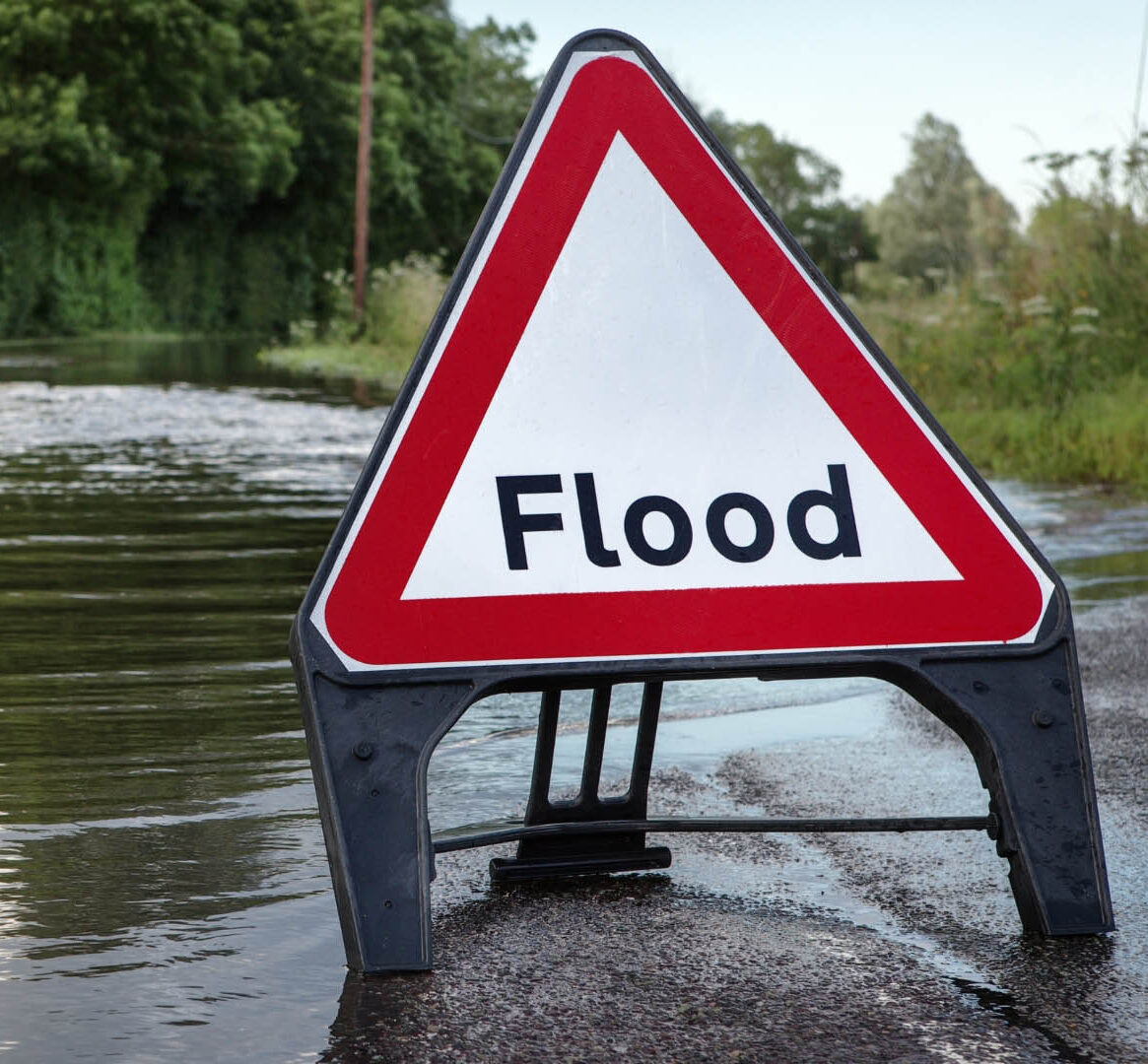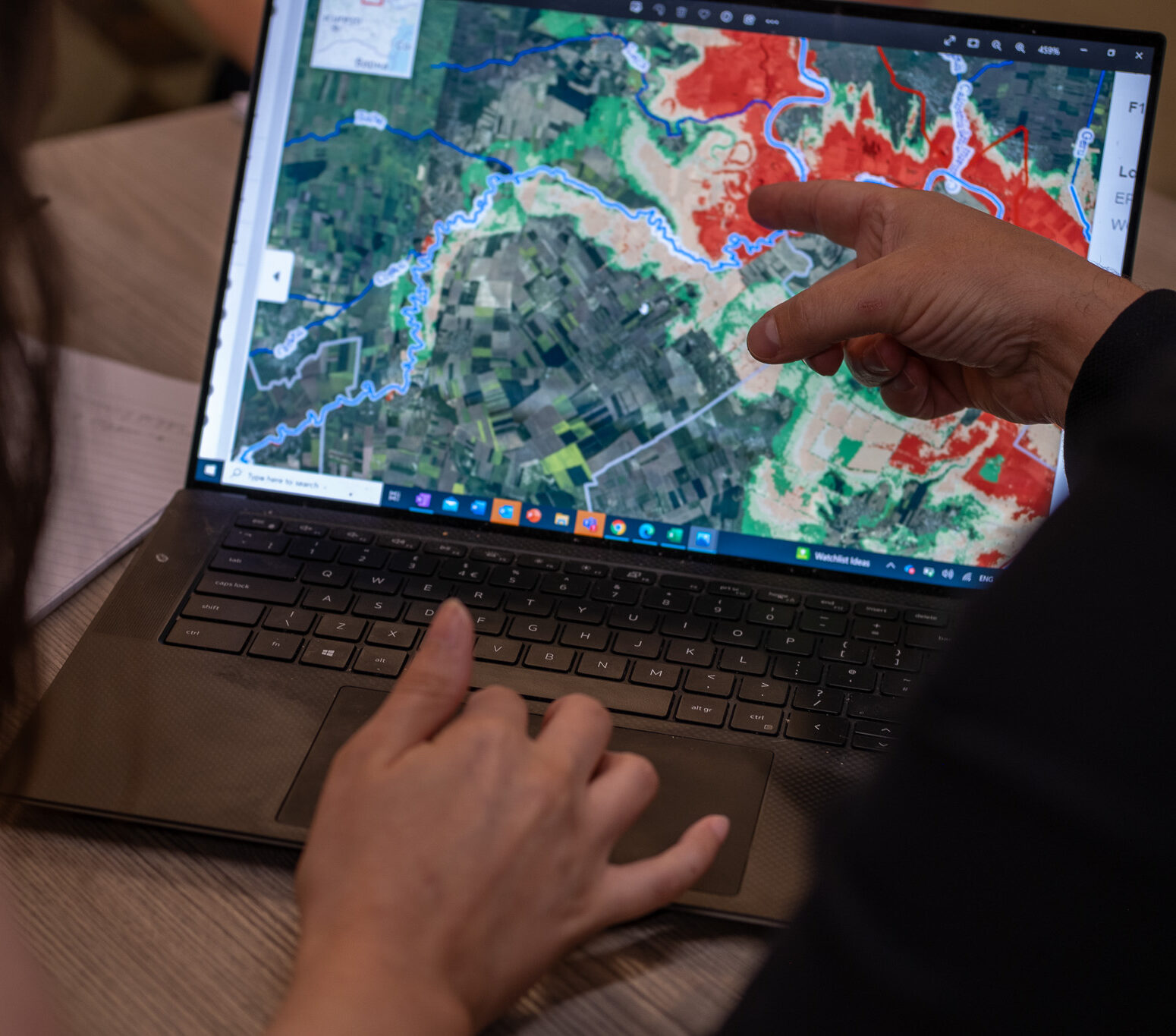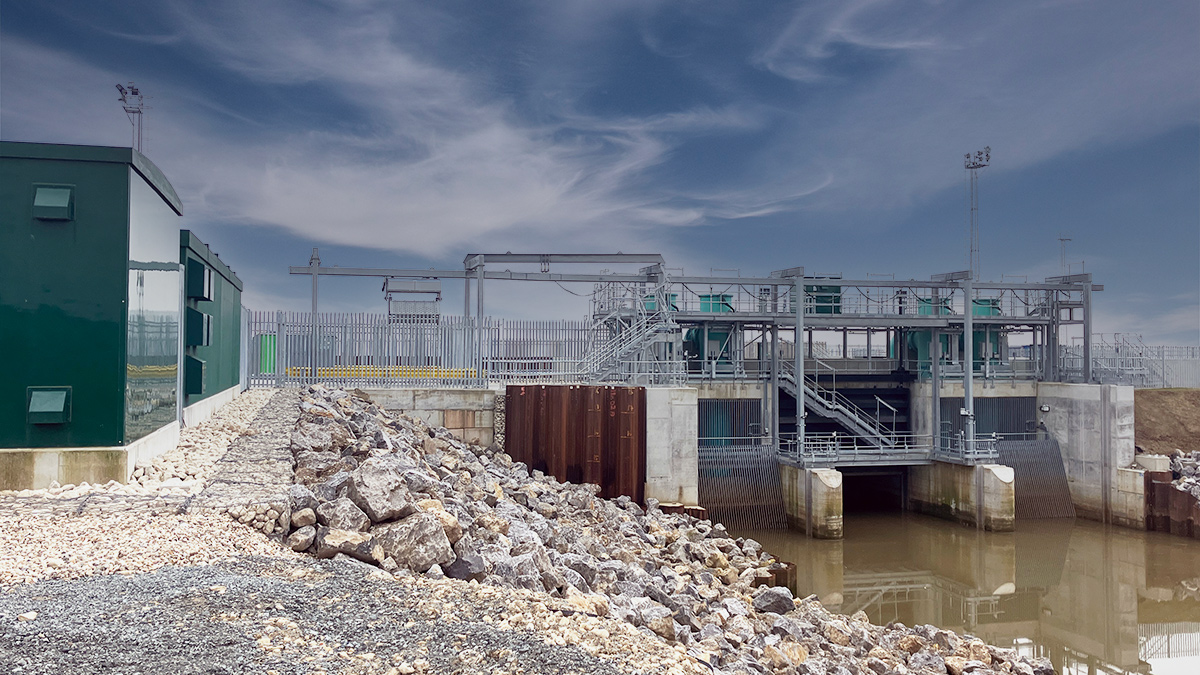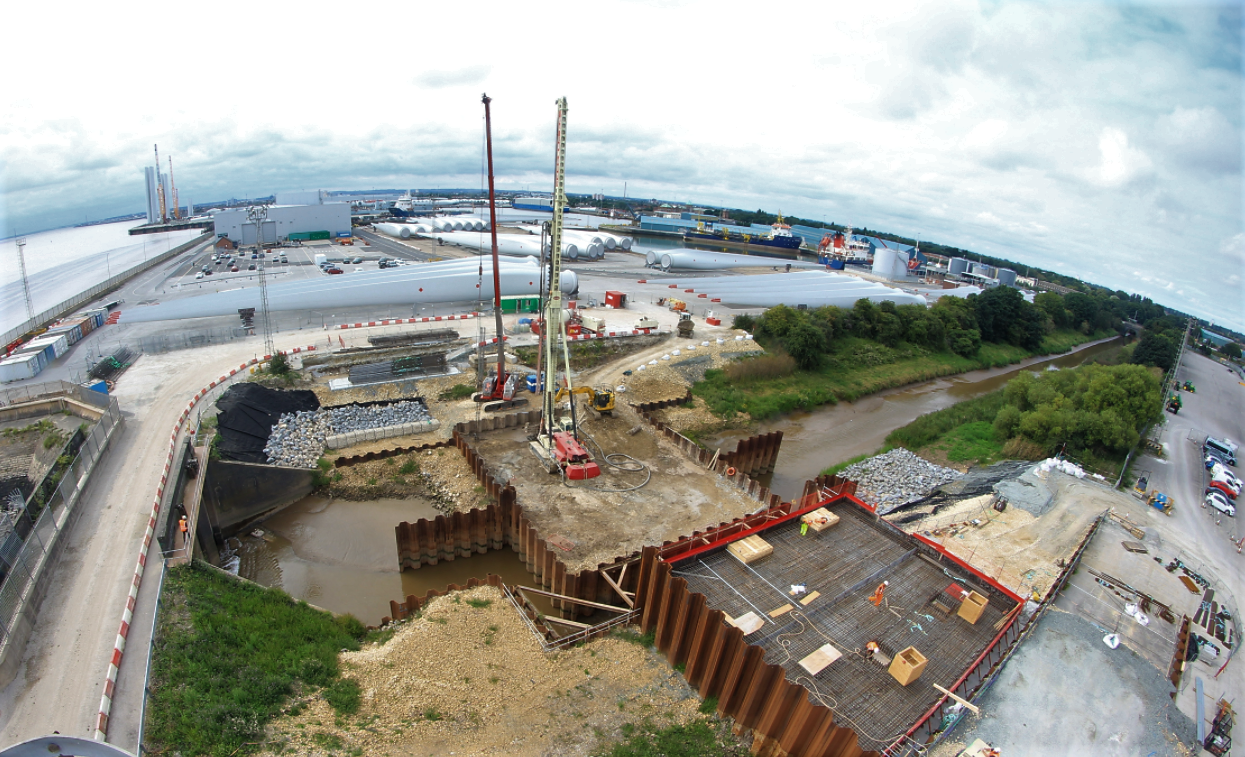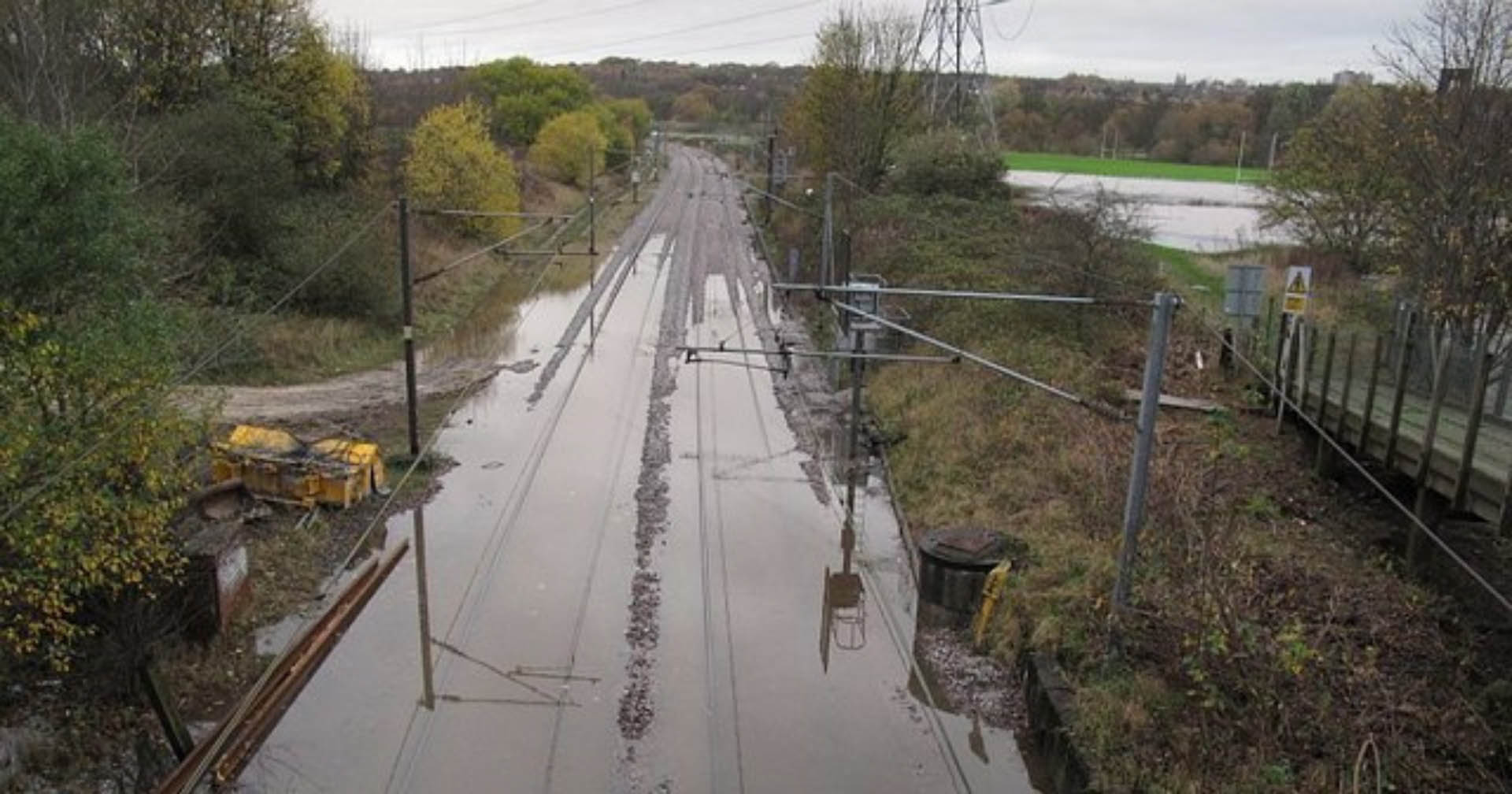By bringing together the Flood and Coastal Erosion Risk Management (FCERM) community each year, the Flood & Coast Awards not only shine a light on the most innovative and impactful FCERM projects. They also provide a reminder of the strength of working together to shape a more climate-resilient future. The power of collaboration and partnership to drive action within the industry, through our communities and across society is something that cannot be understated.
Recognising this, we were incredibly proud to see ongoing collaborations and partnerships at the heart of the JBA-supported projects named as finalists and winners at this year's Flood & Coast Awards. With wins across a range of award categories, our success is not only a testament to the diversity of expertise across our teams, but also their ability to work with others as one team to deliver innovation and excellence in the pursuit of climate resilience. Whilst our role in these projects may vary, they undoubtedly demonstrate the strength of coming together to support those most at risk from flooding and coastal erosion.
National Flood Risk Assessment 2 (NaFRA2)
Digital Excellence Award
Project partners: Environment Agency, Jacobs, Defra
The Flood & Coast Digital Excellence Award recognises the innovative use of digital solutions or technologies in improving resilience to flooding and coastal change. And with innovation forming such a significant part of who we are, we were delighted to see two JBA-supported projects named as finalists, including the winner, National Flood Risk Assessment 2 (NaFRA2).
Working in collaboration with fellow consultants Jacobs, and a small group of industry and academic experts, this project saw us support the design, development and implementation of the Environment Agency’s next generation national flood risk system. By incorporating enhanced flood modelling, high-resolution mapping and improved climate change projections, this innovative cloud-based system provides a single picture of current and and future flood risk from rivers and the sea, and from surface water.
Calling upon expertise from both our Technology, Data and Software Development and Modelling and Assessment teams we supported; the integration of new and existing fluvial, coastal, tidal and surface water flood models, the development of a bespoke data management solution for complex national spatial datasets, the use of parallelised cloud computing to produce meaningful flood risk information and the development of a web interface which will allow users to access, query and visualise data.

Holderness Flood Alleviation Scheme (FAS) – East Hull Pumping Station and Castlehill Flood Storage
Climate Resilient Asset and Engineering Award
Project partners: JBA Bentley, Environment Agency, Hull City Council, East Riding of Yorkshire Council, National Highways, Hull and East Yorkshire Local Enterprise Partnership
Recognised by the awards panel for the delivery of long-term resilience through the inclusion of climate adaptation measures, this complex design and build solution, saw close collaboration between the JBA Consulting and JBA Bentley teams to deliver an innovative solution that will reduce the risk of flooding to more than 1,000 homes in Hull and the surrounding areas.
Located at the southern end of the Holderness Drain, the project comprised of two working areas – a new online pumping station, and a flood storage area at Castlehill, along the route of the Holderness Drain. The nature of this work meant a truly multi-disciplinary approach was required. As a result, the works were undertaken as a joint venture between ourselves as designers and JN Bentley as the principal contractor (JBA Bentley).
Calling upon expertise from both teams, we utilised innovative temporary and permanent works to deliver an improved pumping station, which included built-in adaptation measures to reduce the need for future upgrades, incorporated scour protection to prevent the station’s foundations from being undermined, and increased the reliability of existing tidal defences. Whilst at Castlehill we were able to support the transformation of the existing floodplain into a multi-functional site which will contribute to flood resilience and provide a wide range of social-environmental benefits.

Devon Resilience Innovation Project
Surface Water Management Award
Project partners: Devon County Council, Kisters, Westcountry Rivers Trust, University of Exeter, University of Plymouth
The Flood & Coast Surface Water Management Award recognises cutting-edge, sustainable approaches to managing surface water aiming to the risk of flooding and improve adaptation and resilience to climate change. In recognition of their incredible work to reduce the impact of flooding to communities across Devon, the Devon Resilience Innovation Project (DRIP) was named as a worthy winner, and we’re proud to have played a role in supporting the project.
Forming part of the Flood and Coastal Innovation Programme (FCRIP), DRIP aims to improve resilience to flooding in 26 communities across Devon. By focusing on increasing community preparedness and support, Natural Flood Management (NFM), the adoption of smart technologies and the protection of community assets, the scheme will transform the way residents prepare for, and recover from flooding.

The Rochdale Flood Poverty Project
Innovation in Climate Resilience Award
Project partners: Rochdale Borough Council, The National Flood Forum, North-West Regional Flood & Coastal Committee, Environment Agency, Flood Re
Forming part of the FCRIP funded Resilient Roch Project, The Rochdale Flood Poverty Project set out to facilitate better understanding of the factors affecting ‘flood poverty’ and their impact. As winners of the Innovation in Climate Resilience Award, the project has been recognised for the significant research delivered and use of innovative resilience measures delivering benefits in FCERM.
Centred around neighbourhood scale reviews in two locations within Rochdale Borough, the Rochdale Flood Poverty Project was established to test, share and recommend practical approaches to addressing ‘flood poverty’ issues and achieving more sustainable property level resilience outside of post flood event recovery schemes. Through the creation of a detailed report which identifies an overall approach to addressing the issues, as well as the key principles which should underpin recommendations for future works, the project will provide a valuable body of evidence that can be used to support national work streams.
To support of the creation of this report and of the Resilient Roch scheme more widely, we have provided a range of services including surveying, flood mapping, flood modelling and stakeholder engagement.
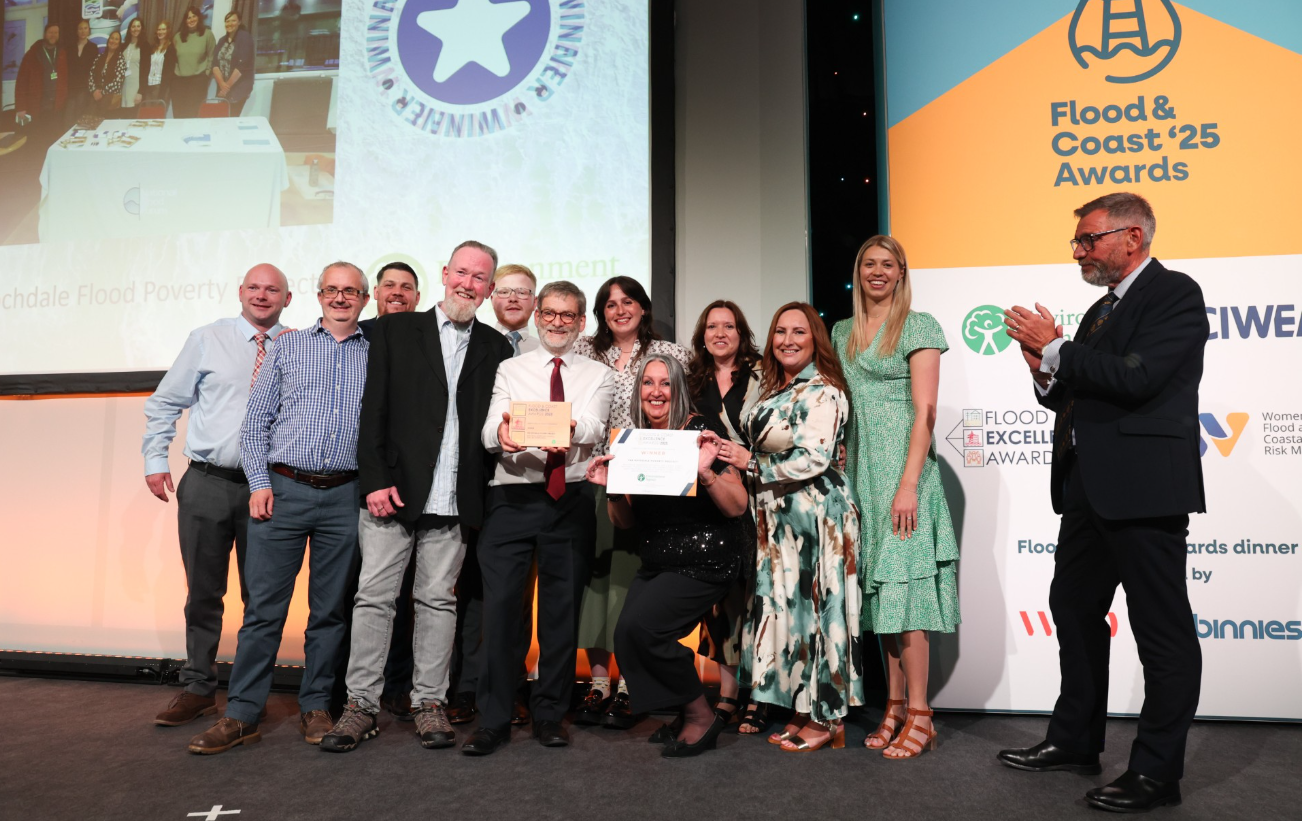


For more information about these projects and our ongoing collaborations, contact us here.
